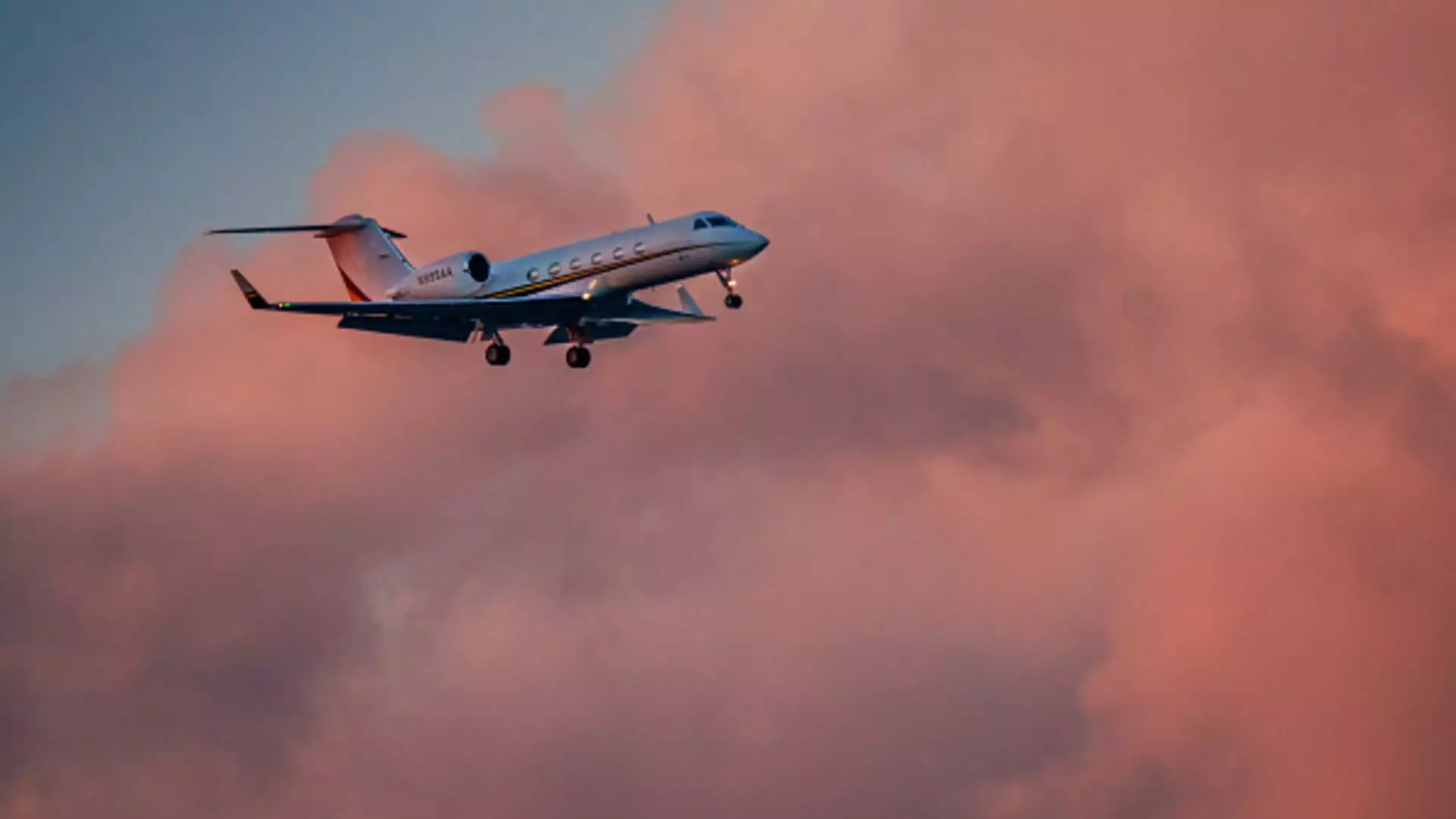Private jet flights have seen a significant decline in the first half of 2024, with a 15% drop from their peak in 2022. This decline is attributed to waning demand and increased competition in the high-end travel sector. Despite a brief surge in private jet flights to Paris during the Summer Olympics, the overall trend indicates a decrease in private jet charter flights. Data from Argus International shows that there were 610,000 private jet charter flights in the first half of the year, down from 645,000 in the previous year and 716,000 in 2022.
The ongoing correction in the private aviation industry is evident as new jet card members and charter fliers, who began using private jets during the Covid pandemic, are now reverting to commercial flights. Even ultra-wealthy travelers are showing signs of spending fatigue, contrary to the belief that once someone experiences flying private, they would never go back to commercial flights. This shift in consumer behavior has contributed to the overall decline in private jet flights in 2024.
The challenges faced by the private aviation industry can be traced back to the Covid pandemic. In 2020, private jets offered a safe and secluded way to fly when airports and airlines were shutting down. This led to a surge in demand from wealthy travelers who previously hesitated to fly private due to cost and environmental concerns. The influx of liquidity from government stimulus and a booming stock market further fueled the demand for private jet charters.
Several key players in the private jet industry have faced financial struggles, with some companies shutting down operations due to mounting debt and operational challenges. For instance, Wheels Up, a publicly traded company, reported a significant net loss in the second quarter of 2024, highlighting the financial pressures faced by private jet operators. The industry is now experiencing a shakeout as the rapid expansion during the post-Covid era is unsustainable in the long run.
While the private jet industry is still ahead of 2019 levels, the recent decline in demand has forced companies to reassess their operations and strategies. Smaller charter operators are particularly vulnerable, as fleets remain idle and demand continues to fall. The industry executives view the current slowdown in demand as a positive development, leading to a more balanced equilibrium with profitable routes and satisfied customers.
Despite the overall decline in private jet flights, the fractional ownership model has seen an increase in popularity. Industry giant NetJets, owned by Berkshire Hathaway, has benefited from more people switching from charter to fractional ownership due to reliability and quality. The number of fractional flights increased by 12% in the first half of 2024, indicating a shift in consumer preferences towards a more cost-effective and flexible ownership model.
The private jet industry is facing significant challenges in 2024, with a decline in demand and financial struggles among key players. The shift in consumer behavior and the impact of Covid have contributed to the current state of the industry. However, the industry executives are optimistic about the future outlook, as the slowdown in demand is seen as a necessary adjustment for long-term sustainability. Overall, the private jet industry is undergoing a period of transition and adaptation to meet the changing needs of high-net-worth travelers.

